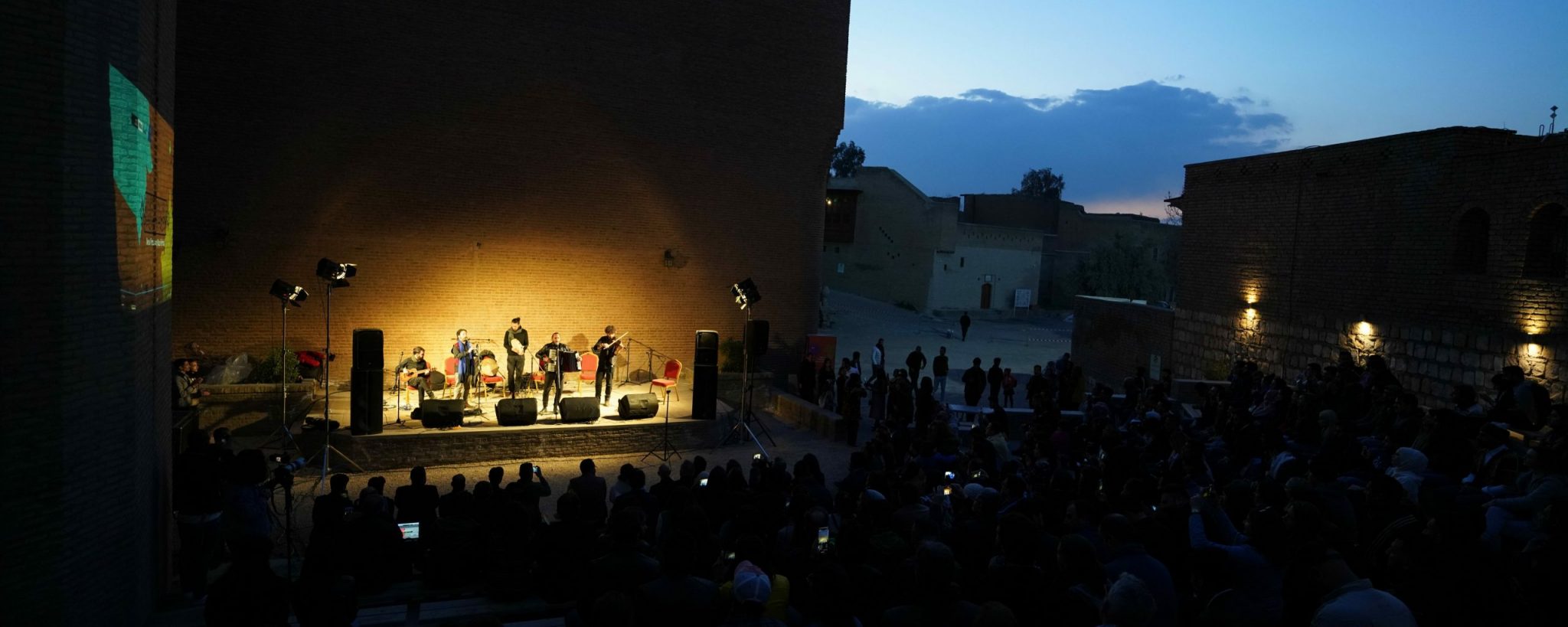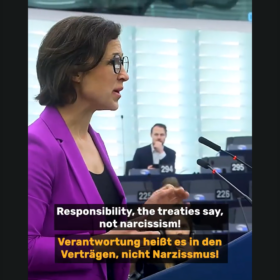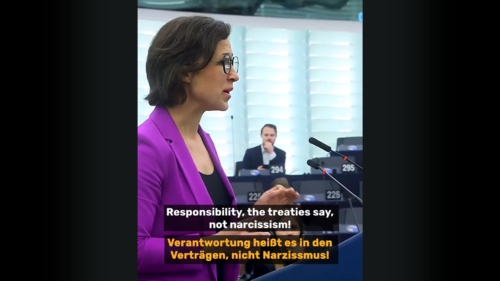After the ISIS occupation, Mosul is still in the process of reconstruction – making music together is a symbol of this. I travelled to Iraq for the “Mosul Traditional Music Festival”. Questions and answers about the festival:
You have been to Iraq a few times now: How do you experience the political situation in the country and which changes have you observed over time?
HN: I have the feeling that the security situation is really becoming more stable – both in Baghdad, where you can now move in a more uninhibited manner again, and in Mosul, where I also feel very safe. The political situation is rather complicated. In October, parliamentary elections took place, which I observed as part of the EU Election Observation Mission. However, a government has still not been formed. This is not unusual in Iraq, given that the parliament also has to agree on a president. This laborious process is holding up political developments at the moment, so there are still many challenges. But considering that Iraq used to be one of the most dangerous countries in the world, I would say that a lot has improved.
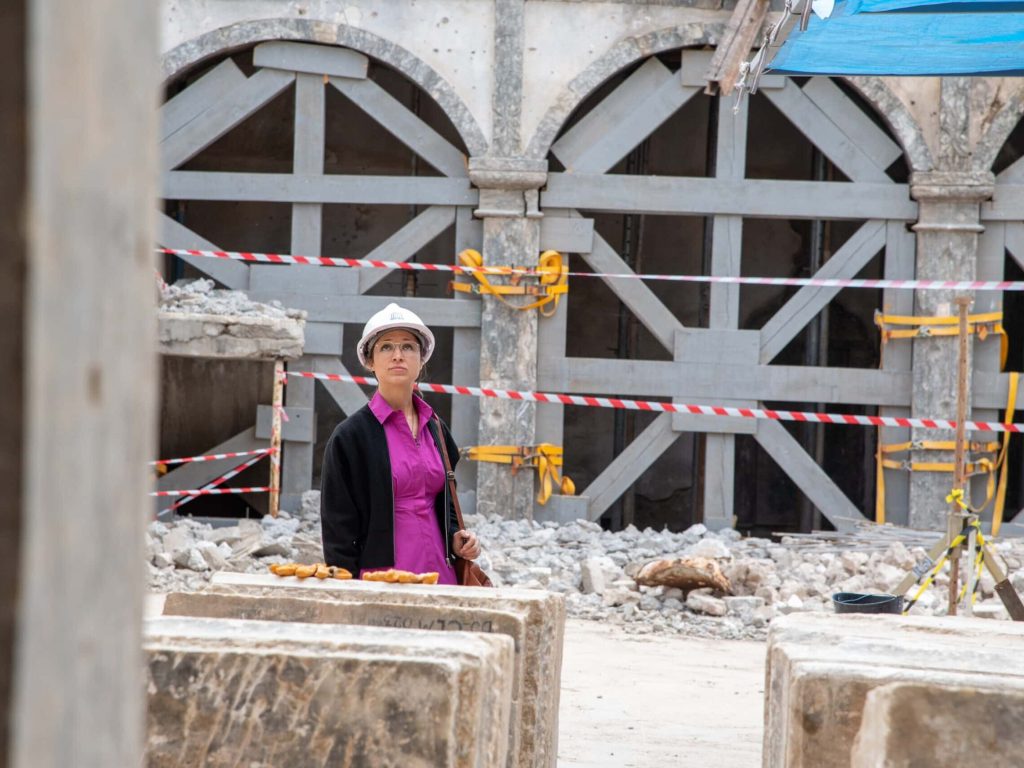
Mosul is one of the oldest cities in Iraq and was a theatre of war during three years of occupation by the Islamic State. Now the city is in the process of reconstruction. Do you believe that the city is now recovering?
HN: The parts of the city without historic buildings, which had not been destroyed as badly, have mostly been rebuilt. However, the historic old city was almost razed to the ground in the last days of the ISIS occupation. When I was in Mosul for the first time, there was only a stone desert at the place where once one could admire historic mosques and churches. UNESCO is now trying to rebuild what was once a world heritage site – in a way that is as closely to the original as possible, and with the original materials. Of course, this is a long process. Yet, the first houses in the traditional style made of the old materials are already there and can now be handed over to their original owners.
Above all, it is nice to see that particularly younger people are presently so confident that their projects – such as starting a business or building a house – can last. The trauma of ISIS occupation, the threat of everything one builds up to be destroyed, has disappeared.
Last weekend, the “Mosul Traditional Music Festival” took place – the main reason for your trip. How did the idea to organise such a festival come up?
HN: The reconstruction project of UNESCO is called “Revive the Spirit of Mosul”. It’s not just about rebuilding houses, but also about bringing back what Mosul used to be about: the culture of this city, which has been richly blessed with arts and crafts. Under ISIS, everything was forbidden: Musical instruments and sound recordings were destroyed, people were no longer allowed to make music – if at all, this was done secretly in catacombs and cellars. Since even before the ISIS occupation, cultural life in Mosul was in a sorry state due to the US occupation, the civil war and the influence of Al-Qaeda. There was a danger that the traditional music of Mosul would be lost, because almost an entire generation did not have the opportunity to get to know this music. That’s why it was an aim to collect the music and to present music groups to the public that can still convey this cultural heritage. In this context, the “Fête de la Musique” came to my mind, which is celebrated regularly in many European cities. . I knew immediately: if music were played again in every corner of Mosul, in a city where music had been banned for so long, it would also be a sign that ISIS’ domination is finally over. Mosul is much more than ISIS. Mosul is a city where you can look back on a rich culture that is now making its return – that was the hope the organisers had. Then the idea came up to not only present bands and their music, but to organise an actual music festival at different locations and also invite European bands to play their respective traditional music.
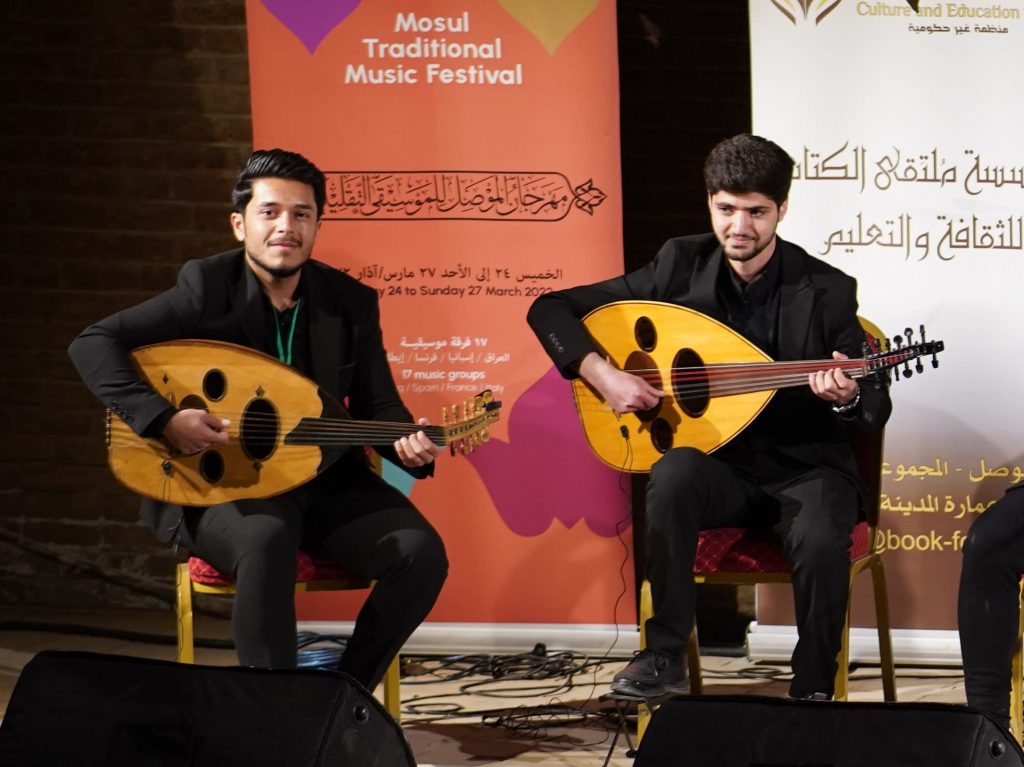

What was your part in the festival?
HN: Jointly with the EU delegation, which financed most of the project, I thought about how such a music festival could be set up in Mosul. To this end, I spoke with various organisations, such as the NGO Action for Hope, which, among other things, promotes traditional music and helped to realise the project. Of course, there were difficulties in the planning, for example security concerns – but these could be dispelled through, for example, the smooth running of Pope Francis’ visit to the city. Then there was the pandemic: during this time, it was a matter of lifting the spirits of everyone involved and encouraging the ambassadors of the countries from which the participating music groups come to stay on the ball. Finally, I attended the three-day festival, introduced the first concert and moderated the event. My presence as a Member of Parliament of course also drew attention to the event.
Music should connect and build bridges. Musicians from different cultural and religious backgrounds took part in the festival. How did they get along with each other? What message do events like the festival send?
HN: Let me tell you a few stories about this. For example, the band “Andalusian Roots“ took part in the festival: I am fascinated by the fact that Andalusian traditional music is very similar to Iraqi music. Southern Spain was under Arab rule for almost eight centuries, which of course also had a strong influence on Spanish or Andalusian music. A member of “Andalusian Roots” has Iraqi parents and had fled Iraq together with them as a child. On the occasion of the music festival, he returned to Iraq for the first time since his escape. This is why the festival touched him personally. Of course, he also told his story on stage.
And then there was a French trio: Three young women who came on stage with off-the-shoulder dresses with a wide neckline. I think everyone held their breath for a second at that moment. But then they kicked it off and conquered the whole room with their music. It was a huge party and suddenly it didn’t matter anymore what they were wearing. In moments like these, you realise that music can build so many bridges and overcome so many barriers.
This also became clear in the evening when everyone sat together in a jam session and sang “Bella Ciao” together, accompanied by Iraqi instruments and rhythms. You don’t often experience such things in life. I think we all realised that this experience was a great treasure.
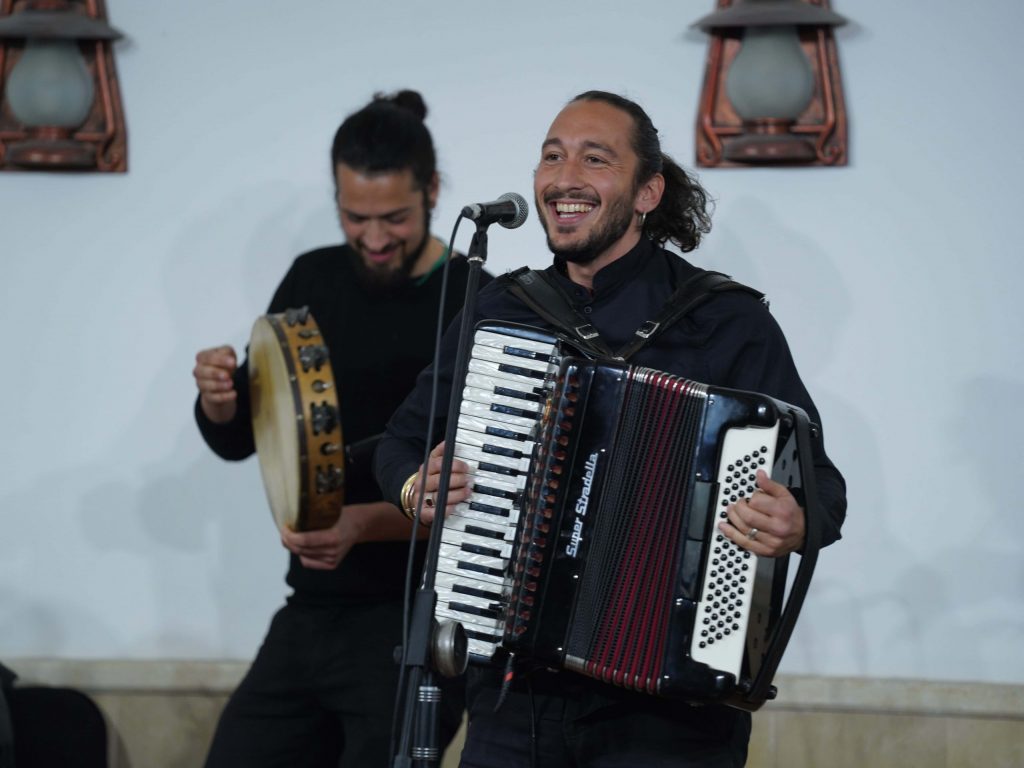
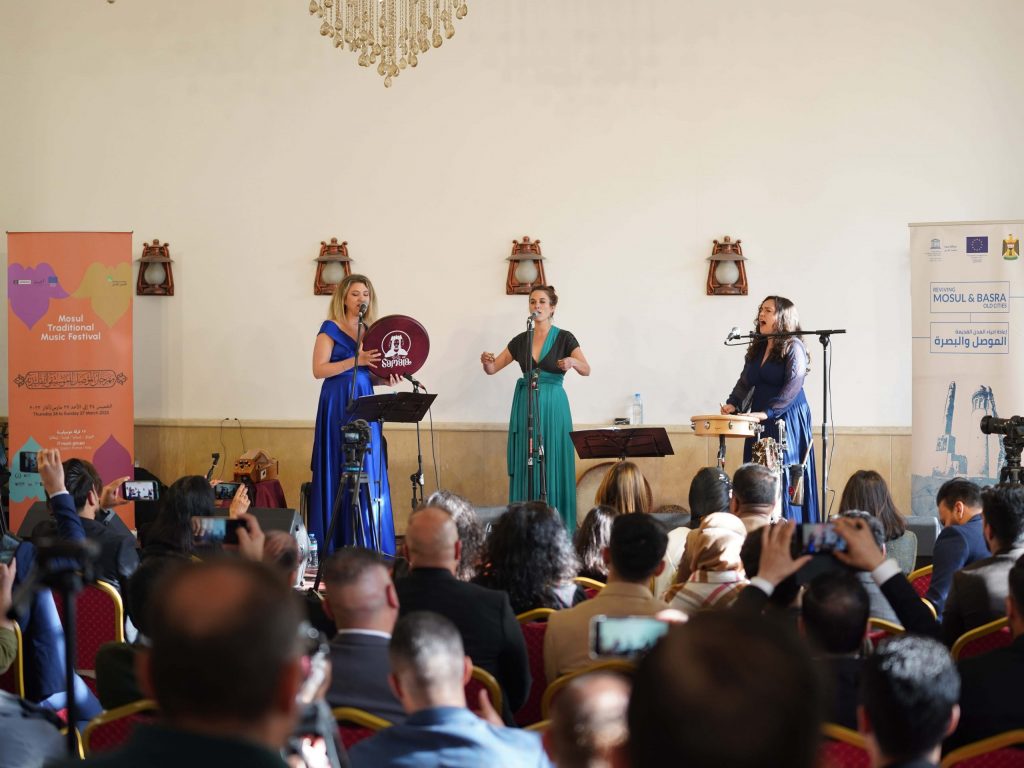
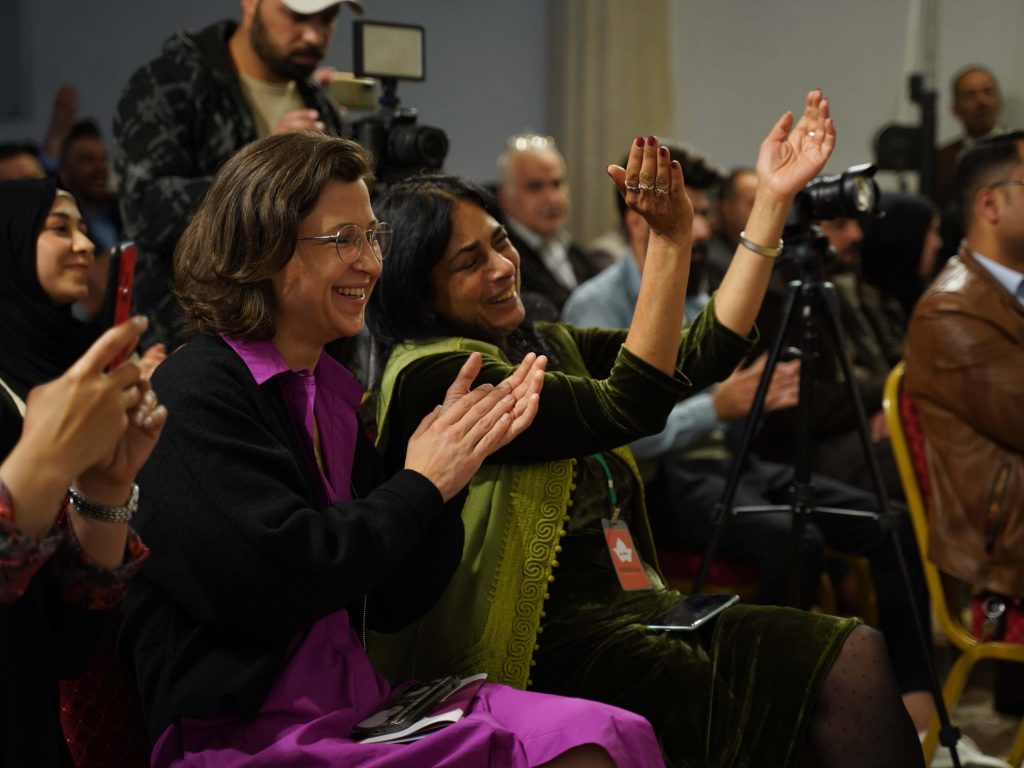
You already mentioned it – and Ali Al-Baroodi describes it in his article “The Music Plays Again in Mosul” The Islamic State had practically eradicated music in Mosul and was known for persecuting musicians. Did these terrible experiences affect the planning of the festival? What was the state of security like? Was it difficult to find music groups from abroad?
HN: It depends: one band, for example, could not stay overnight in Mosul and had to travel to Erbil in the evening. Other participants were able to move in an uninhibited manner around Mosul and even visit the market. This was not directly related to ISIS, but rather to the general security situation in Iraq and to how the respective home countries of the musicians who had come from abroad assessed it. There are generally high security standards and controls when you go to Mosul. I didn’t have the feeling that the security situation was exceptionally tense in relation to the music festival. The threat from ISIS is still an issue, but it doesn’t play such a big role anymore.
Was the festival well received by the audience and the city?
HN: I would definitely say so. The festival was always well attended, even on the last day. And especially when all the people were dancing on one evening, I had the feeling that everyone was very happy with this still rather unusual freedom they were enjoying at that moment. Of course, it has to be said that it was mainly the city’s social elite that took part in the festival. But they usually initiate such changes, so I don’t think that’s necessarily a bad thing.
Do you think the project achieved its goal and created an incentive to start more cultural projects in Mosul?
HN: Smaller cultural projects have been organised in Mosul before, but the music festival was bigger and more professional. I think it encouraged young bands to try something new in the city. The ambition is to organise this festival once a year. But we have to wait and see how the political situation in the country develops. In any case, I think it would be very nice and I can imagine that the „Mosul Traditional Music Festival“ was only the start.
You are currently viewing a placeholder content from Youtube. To access the actual content, click the button below. Please note that doing so will share data with third-party providers.
More Information